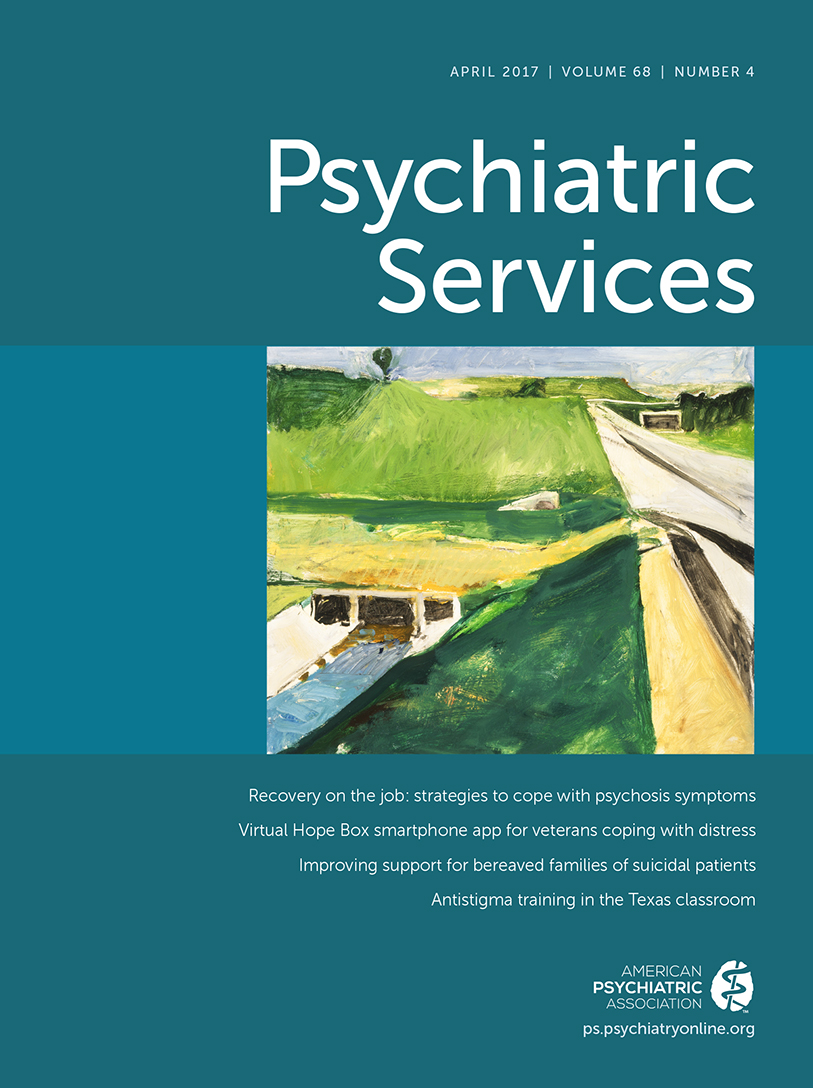A Peer- and Technology-Supported Self-Management Intervention
An emerging literature supports the potential effectiveness of integrated medical and psychiatric self-management interventions in helping adults with serious mental illness to manage chronic health conditions while enhancing mental health outcomes. However, current medical and psychiatric self-management interventions have had limited implementation and dissemination. Innovative approaches are needed to enhance the affordability, scalability, and reach of these interventions. Peer delivery and mobile technology are promising approaches to improving access, reach, and sustainability of medical and psychiatric self-management interventions. We developed a peer-delivered integrated medical and psychiatric self-management intervention (“PeerTECH”) for individuals with serious mental illness and comorbid medical conditions. PeerTECH uses technology to guide peers in intervention delivery. In this report we describe the development and evaluation of PeerTECH.
In a recent systematic review of integrated medical and psychiatric self-management interventions, we identified integrated illness management and recovery (I-IMR) as having high likelihood of real-world effectiveness. I-IMR was adapted from illness management and recovery, an evidence-based practice supporting psychiatric self-management by using principles of psychoeducation, behavioral tailoring, relapse prevention training, and coping skills training. We subsequently worked with primary care clinicians to create I-IMR by incorporating medical illness self-management based on chronic disease self-management programs designed for the general population. I-IMR was originally designed to be delivered over 10 months by a master’s-level clinician and a nurse. Through consultations with psychiatrists, medical doctors, mental health providers, and peer specialists, our group adapted I-IMR for delivery by peer specialists over three months with the use of in-person e-modules, a smartphone application, and a care management dashboard.
PeerTECH e-modules are designed to be reviewed in person by peer specialists and consumers on a computer tablet. The PeerTECH e-modules include videos and question prompts to guide peers as they deliver I-IMR and peer support. PeerTECH e-modules include 10 sessions: setting recovery and health goals, strategies to meet goals, psychoeducation about serious mental illness and medical illness, causes of mental illness and factors that affect its course, building social supports to improve wellness, medication adherence, developing a relapse prevention plan, coping with psychiatric symptoms and health-related stress, coping with pain and medical symptoms, and accessing mental health and general medical services and making informed decisions. Our expert team developed smartphone-delivered modules that correspond to in-person sessions. The PeerTECH smartphone application is designed to aid the transfer of skills learned from the in-person sessions to real-world experiences. The app includes a daily personalized self-management checklist with tasks such as “watch peer-led videos demonstrating how to check your blood glucose”; medication lists and reminders; access to the relapse prevention plan; features to input biological data, such as blood pressure and weight; and a HIPAA-compliant chat feature for use between a peer and consumer. Smartphone app data are sent to the peer care management dashboard.
The peer care management dashboard is a repository for consumer information that is monitored daily by a peer recovering from mental illness. The dashboard displays the consumer’s demographic information, data on completion of self-management tasks and medication adherence, alerts when blood glucose or blood pressure levels exceed recommended thresholds, and a rating of the consumer’s confidence in completing self-management tasks. The dashboard enables messaging to the smartphone app. Peers use the messaging feature for follow-up discussions during in-person meetings. Both the smartphone app and care management dashboard are commercially available products from Wellframe that allow researchers and clinicians to design intervention protocols with existing technology platforms. Our pilot evaluation of PeerTECH found it to be acceptable, usable, and potentially beneficial. Peers found the technology to be well organized and easy to use, and they were confident using the technology. Peers completed all tasks without difficulty, demonstrating the capacity of tailored technology to successfully guide delivery of integrated self-management.
The combination of peers and technology represents a promising approach to “scale up” manualized interventions. First, peer specialists are well positioned to motivate other individuals with mental health issues to engage in technology-based self-management activities. Second, peer specialists in many states are eligible for Medicaid reimbursement, making wide-scale dissemination of PeerTECH highly feasible if found to be effective. The combination of these two service delivery strategies is a potentially effective and scalable approach to improving access, reach, and sustainability of integrated self-management interventions. A future study is planned to test the effectiveness and implementation of peer and technology-supported integrated self-management in improving medical and mental health outcomes for individuals with co-occurring serious mental illness and chronic health conditions.



